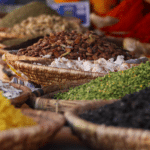March 8th is International Women’s Day – an occasion to celebrate the tremendous contributions made by women across the globe, while highlighting the challenges and inequalities many still face. Project CBD has chosen to honor several extraordinary women patient activists who are fighting to bring about legislative change in the global medical cannabis landscape.
All four women profiled in this article share a common bond that goes far beyond cannabis. Their lives were changed forever when illness came knocking at their door. None of them found their suffering alleviated by the pharmaceutical drugs modern medicine had to offer. Only cannabis has been able to return the quality of life they had so cruelly been robbed.
Their stories could have ended there and, frankly, for most of us this would have been remarkable enough. However, these women saw a problem that needed a solution – how patients just like them were being denied legal access to using cannabis as medicine. They saw that unless they stood up and were counted things were never going to change. And so drawing on limited resources of physical energy and strength, in their own ways they have moved mountains.
Carly Barton – United Kingdom
Carly Barton, a British woman who has been at the centre of efforts to legalize medicinal cannabis in the UK, was just twenty-four when she had a stroke triggered by an underlying health condition. Left with brain damage that caused muscle spasms and debilitating neuropathic pain, Carly was prescribed ever higher doses of opioids, with even fentanyl patches failing to manage her pain.
“Opiates completely take away your ability to engage emotionally,” says Carly. “It’s like having a filthy visor on emotionally, it just numbs you down. And you’re just left in this shell-like state, unable to connect with people, with yourself and with the things you love.”
For a while friends had unsuccessfully tried to convince Carly to try cannabis. It was only when her suffering became utterly intolerable that she finally relented and tried a joint.
“I did a body scan, and I literally could not feel any pain,” remembers Carly. “And that was the first time in six years that I’d come close to that. I think that was the moment for me where I really questioned the application of opiates and our dependence on pharmaceuticals, but also our stigma around this plant and what it’s capable of.”
At the time, using cannabis medicinally in the UK was against the law. Carly soon became involved in campaigning for change, and when legalization eventually came in 2018 she was the first adult patient to get a prescription, costing her over $2000 for a month’s supply (compared to $70 to grow her own).
For Carly, paying this amount was totally unsustainable, and so she continued to grow her cannabis at home. But something about this two-tier legal cannabis system separating the haves and the have-nots bothered her.
“I couldn’t bear the thought of a system whereby if you can afford it, you can be classed as a legal patient, and you can walk down the street with your vaporizer. But if you can’t afford it, then you’re a criminal,” says Carly.
She decided to be civilly disobedient and disclose her illegal home grow to the local police.
“So, I rocked up and admitted to the fact that I had six plants in the house, that I was cultivating cannabis. I presented them with an idea to create a register for people who qualify for legal prescription but can’t afford to sustain it … and those people can be given some kind of promise that they won’t be criminalised for just addressing their own health needs.”
What started out as a conversation at the local police station has turned into an established program with a holographic ID card (Cancard) indicating patients have a health condition for which they are using cannabis medicinally (and can present if they are stopped by the police). Since its launch in September last year, 15,000 patients have registered for a card, and it has widely been supported by police forces across the UK.
Carly’s high-profile activism has led to ugly outpourings of online abuse. “I have had threats – for some reason these often refer to slitting my throat,” she confided, adding: “I haven’t once been trolled or abused by a woman. There are many egos in this space and changing the dynamic to a more nurturing, calm and collective voice seems to have riled some of the more high-conflict people who feel some sense of ownership over the plant.”
She goes on: “If we could harness some of the energy and even some of the anger and collectively channel this into something productive, we could make change more swiftly.”
Carola Perez – Spain
A legislative mess in Spain whereby growing your own cannabis consumption at home is permitted, but medicinal use has not been legalised, means that patients there are in an extremely vulnerable situation. That’s something that Carola Perez, President of the Spanish Observatory of Medicinal Cannabis, is fighting to change.
Herself a patient, Carola broke her coccyx while rollerskating as a child, leading to endless spinal surgeries and her teenage years lost to heavy opiates and antidepressants.
“I was an addict,” admits Carola frankly, “My pain was so high. Sometimes I lost consciousness. I fell and broke my jaw many times.”
Life became so intolerable that Carola begged her parents to end her life.
“I remember saying to my parents, I don’t want to live anymore, please help me to die, I don’t want to live anymore. And that was when cannabis came into my life and if it had taken one more year, I don’t think I would be here.”
Like Carly, through cannabis Carola had finally found some relief to the years of physical and mental torment caused by her accident. And like Carly, Carola was determined that others should be able to experience the same relief as her.
When an eleventh surgery left Carola unable to continue working as a band manager, she set up the nonprofit association ‘Dos Emociones’ (Two Emotions). “I said, okay, what am I’m going to do with my life, and I started to help some other patients,” she remembers.
Through Dos Emociones,1500 patients have received consultations with some of Spain’s most experienced medical cannabis doctors, however, Carola soon realized that in order to bring about any meaningful legislative change, a different approach was needed.
Together with some of Spain’s top cannabinoid scientists and doctors such as Manuel Guzmán, Cristina Sánchez, and Dr. Mariano Garcia de Palau, she formed the Spanish Observatory of Medicinal Cannabis with whom she has been lobbying for the legalisation of medicinal cannabis ever since.
For Carola though, change can’t come soon enough.
“This is a thing of medicine. We are not asking for cocaine or anything. It’s just cannabis. We have all the data, and we have so many studies. I don’t know how much suffering we have to show people so that they understand that this is a right for us to have cannabis as medicine.”
Francesca Brivio – Peru
Francesca Brivio from Peru was living a life many dream of as an actress, TV presenter, and journalist. But in 2009, what started out as hives on her arm eventually took over her whole system, until one evening she was rushed into hospital with anaphylactic shock.
Test after test failed to explain what was happening, and despite seeing almost every specialist in Peru, Francesca was none the wiser about what was causing her bizarre selection of symptoms. By this time, her body had almost shut down, she was in a wheelchair, and had been prescribed everything from chemotherapy to steroids.
It was the Mayo Clinic in Rochester, Minnesota, that finally diagnosed Francesca with systemic mastocytosis, a rare autoimmune condition. However, a diagnosis still didn’t mean doctors knew how to successfully manage her symptoms.
She felt helpless – until cannabis came into her life. Accepting the offer of a joint while on holiday was the first time she experienced how her pain and nausea were relieved by cannabis. Instinctively, Francesca knew she’d found the medicine she needed. Within months, she came off all other prescription medication. Through trial and error, she established that vaping cannabis flowers abundant in THC could successfully manage her symptoms.
At the time, using cannabis medicinally in Peru was illegal, so Francesca decided to use her celebrity status to bring about change.
“I knew my privilege,” says Brivio. “So, I started talking about it and going on TV shows and on the covers of magazines. Because I was in really bad shape, and now I am much better, they were like, ‘Oh look at Francesca. She’s using cannabis.’”
Francesca has been instrumental in lobbying for better legal access to medicinal cannabis in Peru, through her nonprofit ‘Cannabis – Gotas de Esperanza’ (Cannabis Drops of Hope), which also serves as an educational resource for patients and doctors. She also founded Cannahope, a clinic with Dr. Max Alzamora, a medical cannabis specialist in Peru.
However, being taken seriously as a woman in Peru, a country engrained with centuries of macho culture, has been challenging for Francesca.
“It’s very conservative and women are not seen as equals. It was tough because I’m a woman and I have a voice and I use it. And some people don’t like that,” she shares candidly. “It’s like you women are good as caregivers, but not to lead. So, thank you and now you move. Now the guys are coming here, and we will make it happen.”
But anyone who thinks Francesca will quietly move out of the way has underestimated her determination to make sure patients remain at the center of development of medical cannabis products in Peru. That’s why she is in the process of developing her own cannabis brand, ‘Hope by Fran Brivio.’
“I am a patient,” says Brivio. “So, I’m always thinking about what we need.”
Michelle Kendall – United States
Coloradan Michelle Kendall was on a year’s sabbatical in Europe when she was diagnosed with stage 3 ovarian cancer. Like many, she put her trust in the standard cancer treatments that are available.
When surgery and several rounds of chemotherapy failed to keep her cancer in remission, Michelle’s future was looking pretty bleak.
It was actually Michelle’s mom who first introduced her to cannabis.
“She has been taking cannabis since my diagnosis,” explains Michelle. “It was really traumatic for her as you can imagine and recreational (cannabis) is very popular here in Colorado. So, my very first cannabis was here with my mother, just for sleep.”
After that, Michelle’s neighbour Bill, a retired GP with an interest in cannabis, started giving her some cannabis infused chocolates he’d made. And then a curious thing started to happen: in her three weekly blood tests, the increase in Michelle’s tumor markers began to slow down.
“I thought, hmm, something’s happening,” says Michelle, “so I started reading more and I became more convinced that there was something to this.”
Her suspicions were confirmed when on her return from a ‘cannabis-free’ trip to the Galapagos islands, her tumor markers had shot up once again by eight points.
For most of us, a spike in cancer markers would most likely send us into a state of blind panic. However, for Michelle it was an opportunity. This merely confirmed that the cannabis chocolates she’d been taking were in fact shrinking her tumors.
“I was shocked and really disheartened for an hour or two,” admits Michelle, “but then I realised this is actually a good thing. This is giving me power. And this is a new tool.
“So that was my big scientific moment, my Galapagos experiment…. And that’s when I got really serious and started spending days in PubMed, and I was absolutely blown away by what I read.”
Thus began Michelle’s crash course in cannabis education. Thanks to her data-driven scientific mind and background in biology, Michelle was more equipped than most to get down and dirty with the often complicated cannabinoid science. She also sought out the brightest and best medical minds such as Dr. Bonni Goldstein and Dr. David Bearman to help her get a dosing regimen.
“I went on high CBD first, and that didn’t bring the marker down,” remembers Michelle. “Then I switched to high THC, and it plummeted faster than on any chemo I’d ever had. My oncologist was pretty speechless when we got the results.”
Sharing Her Story
Like the other extraordinary women we are celebrating today, Michelle felt compelled to make her positive cannabis experience count for something bigger than herself.
“It really shook me up that this information is out there floating around and I almost didn’t find it in the nick of time. So, I really did feel an obligation to share my story.”
And so Schedule 1, the short documentary film was born.
“I’m terminal, I have no treatment options left,” says Michelle. “My parents are so clean scrubbed, they look like they walked out of a Republican national fundraising committee brochure. So, I felt like we, we had a really good story to tell. And I really felt like I had to make the movie and to continue being active every day.”
The film’s title refers to the schedule 1 classification of cannabis in the United States. By classifying cannabis as having no accepted medical use and a high potential for abuse, vital research has been roadblocked for the last fifty years. A situation Michelle finds totally unacceptable.
“It’s so frustrating to realize that open-minded physicians know there’s potential and yet we can’t do adequate research,” says Michelle. “I find that to be just immoral and inhumane… We live in a world that’s just not driven by science and I find that very frustrating when we’re talking about people’s lives on the line.”
While Schedule 1 has been well-received, Michelle continues to face her own personal battle with cancer and is currently once again out of remission.
“Some days I wake up, and I think, gosh, I just want to live my life and love my husband. And then other days, I wake up with a fire in my belly and I want to bring down the DEA.
“It’s so hard for me to accept dying before my 50th birthday, but if I’ve made a big dent and I can push this discussion forward just a little bit, then that makes me feel like that this death would mean something.”
Michelle Kendall passed away surrounded by friends and family on 26th September 2021 aged 48.
Full interviews with Carly, Carola, Francesca and Michelle can be heard on the podcast Cannabis Voices. © Copyright, Project CBD. May not be reprinted without permission.
Recommended Readings
Women Pioneers in Cannabinoid Science
Project CBD honors the huge contributions of women leaders in the burgeoning field of cannabinoid research.
Hemp Farming While Black
Can rural African Americans overcome centuries of oppression to forge a new agrarianism with cannabis?
Thank You, Dennis Peron
Dennis Peron established San Fransisco’s first Cannabis Buyers Club in open defiance of the law.










